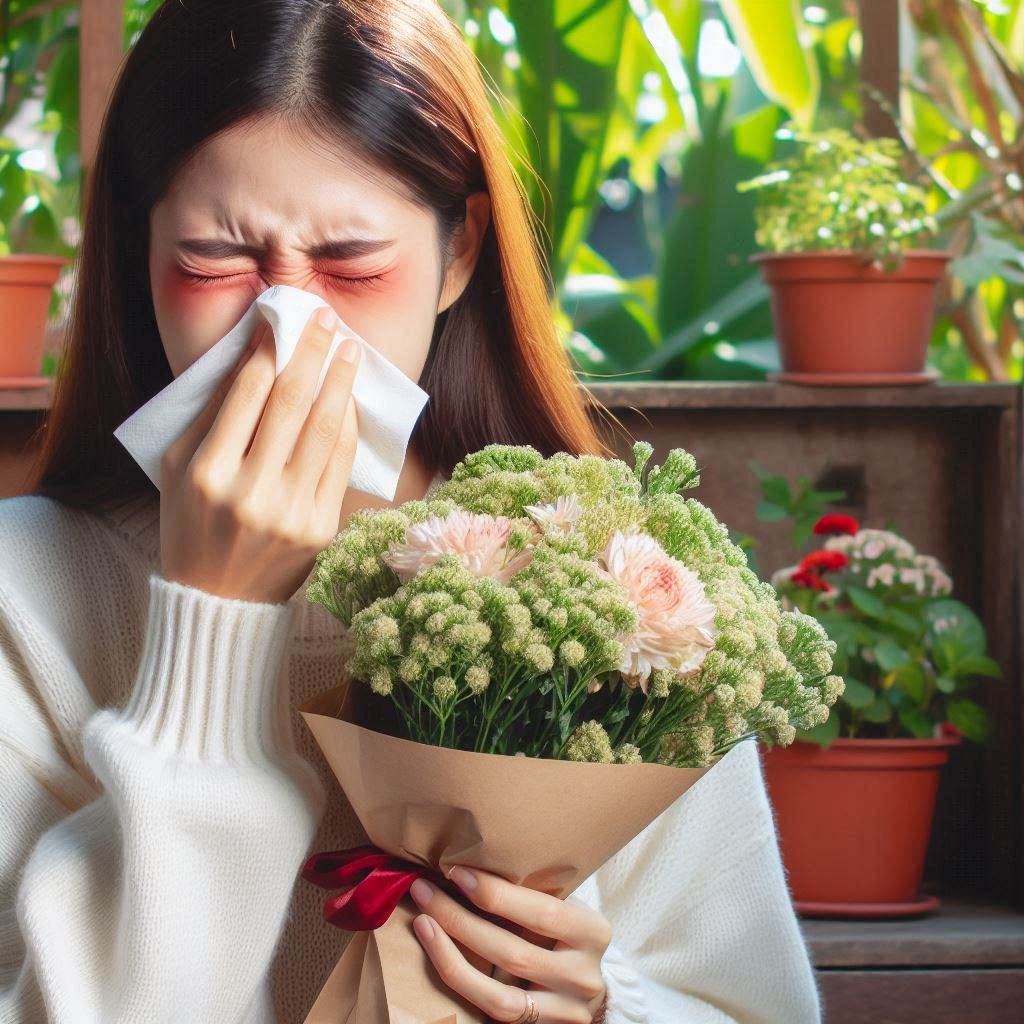Allergic Rhinitis: Causes, Symptoms, Treatment, and Prevention
Allergic rhinitis, commonly known as hay fever, is a chronic allergic condition characterized by inflammation of the nasal passages. It occurs when the immune system overreacts to allergens in the environment, triggering symptoms such as sneezing, nasal congestion, and itchy eyes.

Types of Allergic Rhinitis
There are two main types of allergic rhinitis:
- Seasonal Allergic Rhinitis: Occurs primarily during specific seasons when airborne pollen from trees, grasses, and weeds is at its peak.
- Perennial Allergic Rhinitis: Persists throughout the year and is usually triggered by indoor allergens such as dust mites, pet dander, mold, and cockroach debris.
Common Symptoms of Allergic Rhinitis
Symptoms of allergic rhinitis can vary in severity and may include:
- Sneezing: Frequent and uncontrollable sneezing fits.
- Nasal Congestion: Blocked or stuffy nose, often accompanied by difficulty breathing through the nose.
- Runny Nose: Excessive nasal discharge that is clear and watery.
- Itchy Eyes: Irritation, redness, and itching of the eyes.
- Postnasal Drip: Mucus dripping down the throat, leading to coughing or throat clearing.
- Fatigue: Feeling tired or unwell due to disrupted sleep patterns caused by nasal congestion.
Causes and Triggers of Allergic Rhinitis
Allergic rhinitis is triggered by exposure to allergens that cause an immune system response. Common allergens include:
- Pollen: Airborne pollen grains from trees, grasses, and weeds.
- Dust Mites: Microscopic organisms found in household dust, bedding, and upholstery.
- Pet Dander: Tiny flecks of skin shed by pets such as cats, dogs, and rodents.
- Mold: Fungi that thrive in damp and humid environments, both indoors and outdoors.
- Cockroach Debris: Particles from cockroach bodies and droppings, often found in poorly maintained homes.
Diagnosis of Allergic Rhinitis
Diagnosing allergic rhinitis typically involves:
- Medical History: Discussion of symptoms, triggers, and family history of allergies.
- Physical Examination: Evaluation of nasal passages, throat, and eyes.
- Allergy Tests: Skin prick tests or blood tests to identify specific allergens that trigger symptoms.
Treatment Options for Allergic Rhinitis
Effective management of allergic rhinitis focuses on reducing exposure to allergens and relieving symptoms through medications and, in some cases, immunotherapy.
1. Allergen Avoidance
Minimizing exposure to allergens can help prevent and alleviate symptoms:
- Pollen: Monitor pollen forecasts and stay indoors during high pollen count days. Use air purifiers with HEPA filters.
- Dust Mites: Encase mattresses, pillows, and bedding in allergen-proof covers. Wash bedding weekly in hot water.
- Pet Allergens: Keep pets out of bedrooms and vacuum carpets and upholstery regularly.
- Mold: Reduce humidity levels indoors, fix leaks promptly, and clean mold-prone areas with mold-killing products.
2. Medications
Several types of medications can effectively manage allergic rhinitis symptoms:
- Antihistamines: Block histamine release and alleviate sneezing, itching, and runny nose.
- Decongestants: Reduce nasal congestion by shrinking swollen nasal tissues.
- Nasal Corticosteroids: Reduce inflammation in the nasal passages and relieve congestion and nasal itching.
- Leukotriene Modifiers: Help control immune system reactions that trigger allergic symptoms.
3. Immunotherapy (Allergy Shots)
For individuals with severe or persistent allergic rhinitis, allergen immunotherapy may be recommended:
- Subcutaneous Immunotherapy (SCIT): Regular injections of allergens to desensitize the immune system over time.
- Sublingual Immunotherapy (SLIT): Allergen extracts administered under the tongue to achieve similar desensitization effects.
Lifestyle and Home Remedies
In addition to medical treatments, lifestyle changes and home remedies can help manage allergic rhinitis:
- Saline Nasal Irrigation: Rinse nasal passages with saline solution to flush out allergens and mucus.
- Steam Inhalation: Inhale steam from a bowl of hot water to relieve nasal congestion and soothe irritated nasal passages.
- Avoiding Tobacco Smoke: Avoid exposure to cigarette smoke, which can worsen allergic symptoms.
Coping Strategies for Allergic Rhinitis
Living with allergic rhinitis requires adopting strategies to minimize exposure to allergens and manage symptoms effectively:
- Education and Awareness: Stay informed about allergen triggers and seasonal patterns.
- Regular Monitoring: Monitor symptoms and adjust treatment plans as needed in consultation with healthcare providers.
- Support Network: Seek support from family, friends, or online communities to share experiences and coping strategies.










